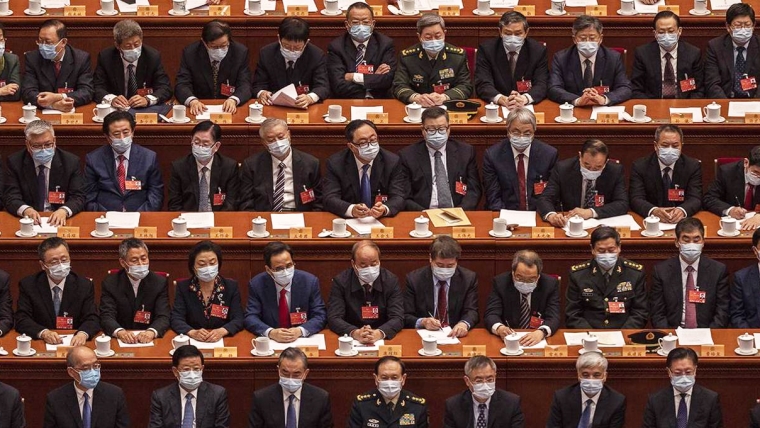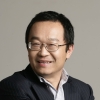
When Western economists and historians analyze China’s spectacular economic transformation over the past four decades, they tend to emphasise the productivity boom unleashed by the start of market-oriented reforms in 1978. But the role of the country’s political elite as a key driver of its emergence as an economic power has remained under-examined.
This is partly because it is hard to measure the contribution of political elites to a country’s economic development. Fortunately, a new study by Tomas Casas i Klett and Guido Cozzi from the University of St. Gallen provides a useful conceptual framework for understanding the Chinese economic model. Casas and Cozzi developed the annual Elite Quality Index (EQx), which measures and ranks the value that national elites create for a country.
Much like other East Asian countries, China has relied on strong state capacity and an effective bureaucracy to foster and coordinate economic development. In the most recent Elite Quality Index, the country ranks 27th (out of 151), the highest score among upper-middle-income economies. In the study’s political power index, which measures national elites’ influence over business regulation, rule-making, and labour law, China ranked 60th.
While Chinese elites maintain a tight grip on state institutions, the index clearly recognises their enormous contribution to China’s economic development. In terms of elites’ role in income redistribution and in public security and welfare, China ranked sixth and ninth, respectively. While the report finds that elites create value for Chinese society in the political domain, China ranked 32nd in elites’ contribution to markets and economic growth.
Mainstream economic theory prevalent in the West cannot explain China’s unique growth model. China’s combination of markets and industrial policy has confounded Western observers, who overemphasise the state’s extractive tendencies and downplay its nourishing role. But the report highlights the Chinese state’s function as a driver of economic dynamism and success. In terms of “coalition dominance,” which refers to the power of insiders in the country’s political economy, China ranked 138th. At the same time, it ranked sixth in “creative destruction,” suggesting that its elite-oriented system is far better at adapting to changing external conditions than some Western economists believe.
The Schumpeterian nature of China’s political elite may baffle foreign observers. But it will not come as a surprise to people who are well-versed in the country’s long history and familiar with how the Chinese state was first formed several millennia ago. As the late Chinese-American historian Ray Huang observed, China is a politically precocious country that completed the process of becoming a modern state 1,500 years before Europe did.
Huang, along with political scientist Francis Fukuyama, was struck by the exceptionally short reigns of feudal Chinese rulers. The tiny warring kingdoms that preceded Imperial China were incapable of resisting frequent invasions from northern nomads or managing natural disasters, creating a political need for a unified government. This came in the form of China’s first emperor, Qin Shi Huang, who ruled China between 221 and 210 BC, and whose political project was to establish a powerful centralised regime.
Qin’s China was, in many respects, the antecedent to the modern state, as defined by sociologist Max Weber, with a vast, centralised bureaucracy and a well-structured tax system. Europe, by contrast, did not take its first steps toward political modernisation until the fifteenth century.
But early development also had disadvantages. Whereas European merchants were able to accumulate political influence before the formation of centralised states, the Chinese regime’s consolidated power enabled it to nip such developments in the bud. That is why capitalism could not emerge in ancient China, despite its relatively modern state institutions. The result was the so-called “Great Divergence,” as Western states industrialised first and overtook China.
Following unification, China’s huge population and efficient bureaucracy allowed successive Chinese empires to experience long periods of prosperity and achieve remarkable advances in science, technology, and culture. But China also sealed itself off from the world for centuries, leading to its gradual decline.
China’s experience over the past 40 years shows that economic growth goes hand in hand with integration into the global economy. That process is still ongoing, and the road ahead is long, as China ranks 80th in trade freedom and 104th in economic globalisation in the EQx index. But China’s rich institutional legacy is conducive to strong economic growth, as is China’s cultural emphasis, traceable to Confucius, on education and savings.
Many countries today struggle to stimulate growth, owing to bureaucratic incompetence, regulatory capture, and rampant corruption. But China’s trajectory highlights the power of a capable, dynamic political elite to drive prosperity – as well as the danger of downplaying the crucial economic role of a strong, efficient state.
Zhang Jun is Dean of the School of Economics at Fudan University and Director of the China Center for Economic Studies, a Shanghai-based think tank. Copyright 2022 Project Syndicate, here with permission.
6 Comments
Lol. Yes sure, it wasn't market capitalism that just happened to coincide with the dramatic rise of the economy, it was the expertise of the very diverse group in the picture.
I know Interest.co.nz wants diverse opinion on its pages but when it comes out of a mouthpiece of the CCCP there should at least be some balance added by someone else.
Actually the Mouthpiece of the WEF:
Scroll to 32 mins 10. To watch Klaus praising the CCCP.
https://www.youtube.com/watch?v=XK0WZNFXuSo
Crazy!!
Interesting, but profoundly one-sided take. For one thing, the spectacular economic growth stopped a few years ago, and China is now in some serious economic trouble, with elites who don't seem to have any good ideas about how to fix things.
China is now face to face with its quite long running one child policy, their population is beginning to crash and along with that, growth. I'm staggered this is not a consideration in this article.
While I am great proponent of the human race reducing its numbers, this has proved quite brutal. They are now beginning to panic a bit about this, and the next thing they are about to find out is that women will not return to a situation of churning out kids, as long as they have control of their own lives.
Also, China made its way up the ranks via offering cheap labour, thereby beckoning production from the west to them, but their people will not willingly return to sweatshops of the past.
They have a dilemma, but if they adopt a more circular rather than consumer society (as we all should) they may be okay.
Yes, it is that simple
No mention of decades of bureaucratically sanctioned starvation and mass executions until they saw their Asian cousins doing rather well with market economies?
Kinda interesting how Mao is still well revered, yet stood for the exact opposite of what's helped China prosper for the past few decades.

We welcome your comments below. If you are not already registered, please register to comment
Remember we welcome robust, respectful and insightful debate. We don't welcome abusive or defamatory comments and will de-register those repeatedly making such comments. Our current comment policy is here.